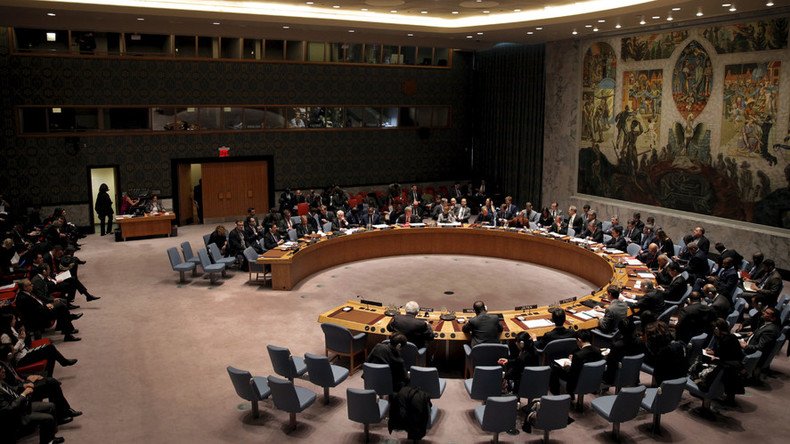‘Potential dead end’ – senator warns of consequences of UN SC’s refusal to pass Syria resolution

Upper House MP Frants Klintsevich has said the United Nation’s inability to reach an agreement on the current situation in Syria could seriously complicate peace talks in the country, or even cause them to fail.
“I am afraid this can seriously complicate the peace talks on Syria and drive the situation in this country into an absolute dead end,” RIA Novosti quoted the Russian senator as saying on Saturday.
READ MORE: US, France say Russia’s draft resolution on Syrian sovereignty has ‘no future’
Klintsevich added that in his view the United States, the UK and France – the three Security Council members who denied support for the latest resolution – “could not, or rather had no desire to step away from bloc positions and continue to act within the friend-or-foe paradigm, typical of the Cold War period."
“They have not voiced any substantial arguments against the resolution. They rejected it, if I can say so, out of principle. The United States, United Kingdom and France, who have the right to veto Security Council’s resolution, have again demonstrated their Atlantic solidarity and effectively supported Turkey’s aggressive actions,” the Russian politician told reporters.
The comment came after US, UK and French ambassadors rejected the Moscow-proposed draft resolution on Syria as having ‘no future’ ahead of an emergency Friday meeting of the UN Security Council. This meeting was called at Russia's request to discuss Ankara's plans for a ground operation in Syria that would threaten the sovereignty of the country.
Russia’s latest concerns are related to a dangerous escalation on the Syrian Turkish border amid Ankara’s “announced plans to put boots on the ground in northern Syria," Foreign Ministry spokesperson Maria Zakharova said on Friday, adding that the situation in the region is worrying because Islamic State (IS, formerly ISIS/ISIL) fighters are freely entering Syria.
The draft resolution called on all states to avoid “provocative rhetoric and inflammatory statements” that could further incite foreign interference in Syria’s internal affairs, instead of promoting a political settlement to the conflict. It also included demands to end any actions that undermine the sovereignty and territorial integrity of Syria, and interfere with the launch of the Syrian peace process.












